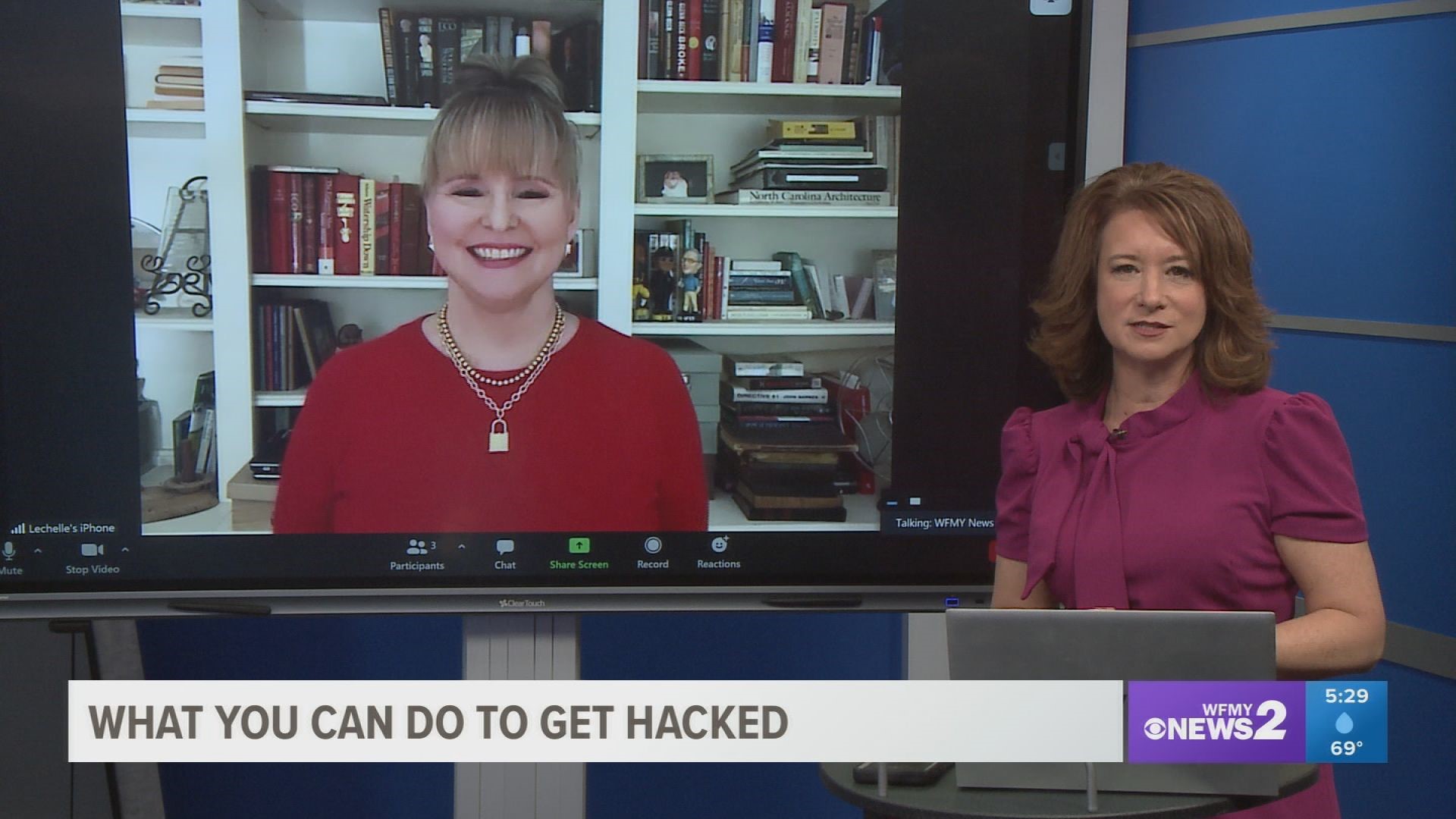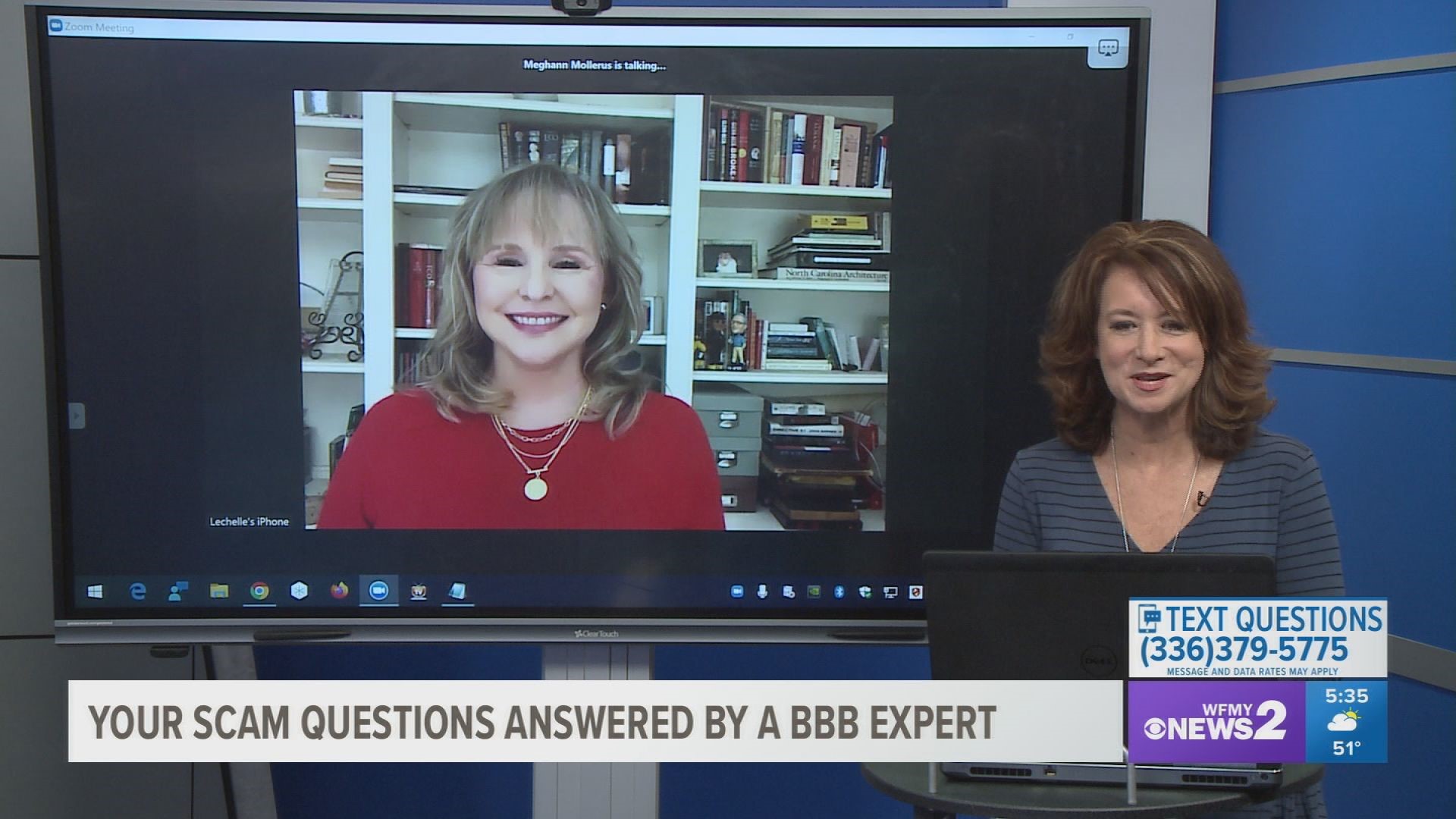GREENSBORO, N.C. — You hear it all the time --
Don't click links or attachments from people you don't know.
Protect your financial information.
Shop online with a designated credit card or use Apple or Google pay.
Set up alerts so you know if your account is being used for purchase.
All of these are ways to keep your accounts from getting hacked.
But Lechelle Yates with the Better Business Bureau points out ways you can get hacked that you may not have been previously aware of, as well as other new scams to be aware of.
BBB SHRED INFO:
SATURDAY, APRIL 10 9AM-NOON
WHOLEFOODS PARKING LOT AT GREENSBORO FRIENDLY CENTER
How you can have your accounts hacked without even realizing it
Take all those surveys using things you like and dislike:
Fun quizzes often ask a series of personal questions to help you find out which Disney Princess you are or ask you to share your yearbook graduation photo (along with what high school you attended and the year). Fraudsters find creative ways to use these quizzes to get you to answer the same types of questions used by banks and other institutions when setting up accounts — your first-grade teacher, your first car, your first pet. You are giving out the answers to your security questions without realizing it. Hackers then can build a profile on you. If the quiz requires you to provide your email to participate or get the results, the fraudster now has your email address. He can send a request to reset your password that looks like it came from your bank or credit card company, and when prompted to “Answer these security questions,” he just may have all the information he needs to take over your account.
Keep your social media privacy settings set to public:
This will make sure everyone knows what you are doing, every photo you post, who your friends are, all of the personal details you share and possibly where you live. A hacker will have complete access to the personal details, making you an easier target for identity theft.
Don't update your phone's operating system, home computer or your apps. Definitely don't keep your virus software current:
One of the most common ways cybercriminals gain access to your systems, aside from enticing you into clicking on malicious links, is through out-of-date software. As software companies discover flaws in their systems, updates are issued. By not installing them, you are open to being hacked. Out-of-date software invites malware infections and other cyber issues, such as ransomware.
Don't use password protection on your smartphone or mobile devices:
You get coffee at a restaurant, leaving your device on a table. With no password, anyone who steals it will have instant access to all your personal information.
The Better Business Bureau is hosting a free shred event on April 10 from 9 a.m. to noon so you can get rid of documentation that contains any personal information you don't want someone else to get their hands on.
The event is in the Whole Foods parking lot at the Friendly Center, located at 3202 W Friendly Avenue in Greensboro.
There are also unemployment scams job seekers should be aware of
How employment scams work:
You spot a Help Wanted ad online or receive an email or a text message from an “employer” asking you to apply for a position. The ad likely uses the name of a real business or government agency. Companies small and large – even BBB – have been impersonated. You apply and get a quick response from the “hiring manager.” In recent versions of this scam, many victims report doing a phony interview through Google Hangouts or another video chat service.
After you are “hired,” the company may charge you upfront for “training.” You may need to provide your personal and banking information to run a credit check or set up direct deposit. You may be “accidentally” overpaid with a fake check and asked to deposit the check and wire back the difference. You may also be told that you need to buy expensive equipment and supplies to work at home.
Listen to your gut instincts and ask for an opinion from family and friends if you are unsure about an offer. If you question the company about their methods, you’ll likely be met with a defensive response. But don’t give into the pressure and follow their demands. The job isn’t real!
A new COVID-19 vaccine scam is making its way around
How it works:
A scammer sends a a text pretending to be from Pfizer, one of the pharmaceutical companies with an EUA for its COVID-19 vaccine.
The survey asks you about your COVID-19 vaccine and offers you money, or a free product, in exchange for completing a survey.
Don't click the link! As always, if it seems too good to be true chances are it is!
FREE SHRED EVENT FOR THE PUBLIC:
An extra step you can take to protect yourself is to shred documents with sensitive information. The Better Business Bureau is hosting a free shred event on Saturday, April 10. The event will be in the Whole Foods parking lot in Greensboro from 9 a.m. to noon.


